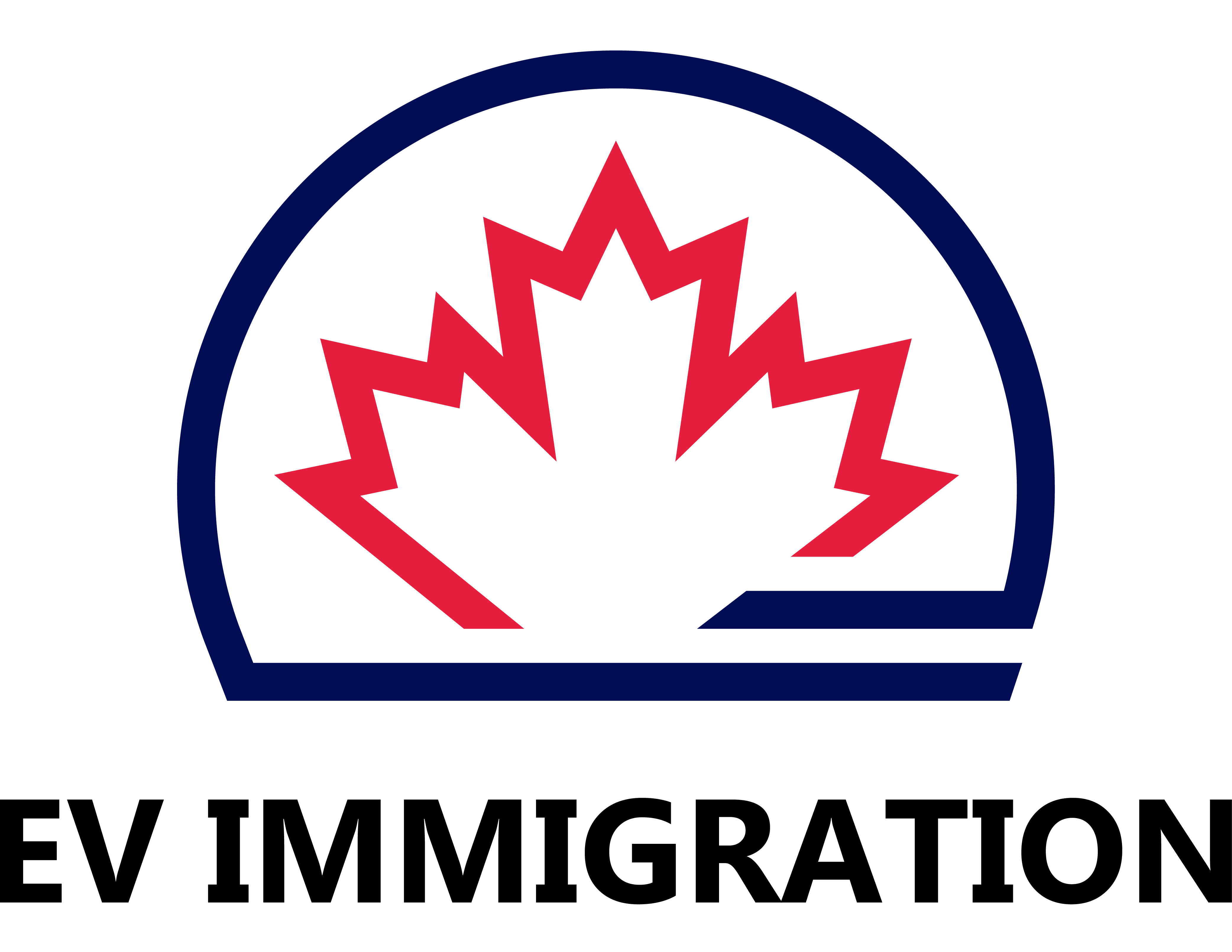In 2024, Canada’s immigration landscape is undergoing a transformative shift, ushering in a new era of possibilities and challenges for individuals seeking to make Canada their home. The changes are not merely incremental but represent a strategic and holistic reimagining of the immigration process.
Spearheading this monumental shift is Immigration, Refugees, and Citizenship Canada (IRCC), an entity committed to not only expanding the number of permanent residents but also to revolutionizing the very essence of the immigration experience.
At the core of this transformation lies a commitment to boosting the number of permanent residents in Canada. The Immigration Levels Plan for 2024-2026 sets an ambitious target of welcoming 485,000 permanent residents in 2024 alone. This signals a robust intent to harness immigration as a driver of economic growth, cultural diversity, and overall societal well-being.
Why Does Canada Need Immigrants?
Amidst these recent developments in Canadian immigration, there exists a demand for immigrants. Canada’s need for immigrants stems from various economic, demographic, and social factors. The country has historically embraced immigration as a fundamental driver of its growth and development.
Among the several reasons are the country’s population and demographics. Canada has a relatively small population compared to its vast landmass. To maintain a healthy demographic balance and support economic growth, the country requires a steady influx of newcomers. Immigration helps offset the aging population and contributes to the expansion of the labor force.
Immigrants also play a crucial role in driving economic growth and fostering innovation. They bring diverse skills, talents, and perspectives that contribute to a dynamic and competitive economy. Many immigrants are entrepreneurs, professionals, and skilled workers who contribute to job creation, technological advancements, and overall economic prosperity.
In connection with this, Canada, like many developed nations, faces labor market gaps in various sectors. Immigration is a strategic tool to address shortages in critical industries, such as healthcare, technology, engineering, and agriculture. Skilled immigrants help fill these gaps, ensuring that businesses have the talent they need to thrive.
Moreover, certain skills and expertise may be in short supply domestically. Immigrants often bring specialized skills that are essential for specific industries. Through targeted immigration policies, Canada can address these skills shortages and maintain its competitiveness on the global stage.
Canada is also aware of the importance of sustainability, and what helps sustain the country’s economy are the immigrants. Many immigrants come to Canada with the ambition to start businesses and contribute to job creation. Entrepreneurial immigrants play a vital role in stimulating economic activity, generating employment opportunities, and contributing to the overall economic well-being of the country.
On a side note, Canada also has a well-established social welfare system, including healthcare and pension programs. A growing and youthful immigrant population contributes to the sustainability of these social programs by balancing the ratio of contributors to beneficiaries.
Canada needs immigrants to sustain its economic growth, address labor market demands, enhance its cultural diversity, and ensure a balanced demographic structure. Immigration is not only a pragmatic solution to various challenges but also a key contributor to the country’s prosperity and resilience on the global stage.
What is the 2024-2026 Immigration Levels Plan?
The Immigration Levels Plan for 2024-2026 serves as a roadmap for Canada’s immigration policies, outlining the government’s targets, strategies, and priorities for welcoming newcomers to the country. In the context of 2024, this plan reflects the commitment of Immigration, Refugees and Citizenship Canada (IRCC) to manage and shape immigration inflows in a way that aligns with the economic, social, and demographic needs of the nation.
The most striking feature of the plan is the ambitious goal to welcome a total of 485,000 permanent residents (PRs) in 2024. This figure represents a substantial increase from previous years, showcasing Canada’s dedication to harnessing immigration as a tool for economic growth and cultural diversity.
Express Entry
The plan emphasizes the continuation of category-based draws within the Express Entry System. Building on the changes introduced in 2023, this approach allows IRCC to prioritize immigration candidates based on specific criteria such as language proficiency and work experience in critical sectors. The flexibility to reassess and adapt the focus categories based on evolving labor market needs reflects a commitment to a responsive and strategic immigration system.
Provincial Nominee Program (PNP)
The plan highlights the significance of Provincial Nominee Programs (PNPs) as a primary immigration pathway. New guiding principles have been provided to provinces, empowering them to select candidates that can effectively address local labor market gaps. The introduction of multi-year plans for the PNP starting in 2024 adds a layer of transparency, enabling provinces to plan their immigration strategies more effectively.
Family Reunification Prioritization
In addition, the plan highlights an increase in admission spaces for the Parents and Grandparents Program (PGP), reaching a target of 32,000 in 2024. This emphasis on family reunification aligns with Canada’s commitment to fostering strong family ties and ensuring that newcomers can build a life surrounded by loved ones.
International Student Program
IRCC also acknowledges the importance of international students in contributing to Canada’s economic and social fabric. To safeguard the integrity of the International Student Program, a reformed Letter of Acceptance (LOA) verification system has been introduced. The impending review of the Post-Graduation Work Permit (PGWP) program aims to better align it with the labor market’s needs and regional immigration goals.
New Advisory Boards
Moreover, Canada has also established an advisory board, inclusive of individuals with lived experience in immigration. This is a unique and progressive move, as this board aims to bring a human-centric approach to policy and program development, ensuring that the voices of newcomers are heard and considered in shaping the future of Canadian immigration.
Chief International Talent Officer (CITO)
It is also important to note that IRCC has introduced the position of a new Chief International Talent Officer (CITO). Which is a strategic move to align the immigration system with national labor market strategies. This position signifies a recognition of the pivotal role that immigration plays in meeting the workforce needs of the country. The CITO is expected to play a central role in effecting substantial changes in Canada’s annual immigration landscape.
In a nutshell, the Immigration Levels Plan for 2024 sets the stage for a transformative year in Canadian immigration. The multifaceted approach, encompassing increased targets, technological innovation, and a commitment to inclusivity, positions Canada as a global leader in attracting and integrating diverse talent. As the plan unfolds, it holds the promise of shaping a more dynamic, responsive, and equitable immigration system for the years to come.
How Can EV Immigration Help?
EV Immigration, as an immigration consultancy firm based in Canada, plays a crucial role in assisting Filipino immigrants in their journey to Canada. The company’s services, mission, and partnerships provide comprehensive support to the Filipino community.
Licensed and Regulated Consultancy
EV Immigration is a licensed consultancy firm with representation from a Regulated Canadian Immigration Consultant (RCIC), Ma. Eden Rabor adds a layer of trust and credibility. Filipino immigrants can have confidence in the legitimacy of the services provided, knowing that they are dealing with a licensed professional who is an active and good-standing member of the College of Immigration and Citizenship Canada (CICC).
Furthermore, EV Immigration brings a deep understanding of the Filipino immigration experience. Ma. Eden Rabor has over 15 years of experience as the Managing Director of a Philippine-based Immigration Consultancy agency and is well-versed in the intricacies of both Permanent and Temporary Residence visas. Her expertise can guide Filipino immigrants through the complexities of the Canadian immigration system.
Tailored Services for Filipino Communities
EV Immigration is committed to serving the Filipino communities in Canada. This means that we understand the unique needs, challenges, and aspirations of Filipino immigrants. The consultancy can provide personalized advice and support, considering the Filipino community’s specific cultural and linguistic considerations.
EV Immigration offers a broad range of services covering various Canadian immigration programs. These include Provincial Nomination Programs, Family Reunification (Spouse and Dependent Visas), and Temporary Residence Visa (Study and Work Visas). This comprehensive approach ensures that Filipino immigrants have access to assistance across different visa categories, addressing diverse immigration needs.
Strategic International Partnerships
EV Immigration has strategically partnered with well-respected companies in the Philippines, such as Enhance Visa and Atheneum International. This network of partnerships enhances the firm’s ability to serve Philippine-based applicants effectively. For instance, Enhance Visa, with over 27 years of experience, can contribute valuable insights and support in processing Temporary and Permanent Residency applications.
With our commitment to ongoing professional development and Ma. Eden Rabor’s active membership in the CICC demonstrates a dedication to staying updated with the latest immigration regulations and practices. This ensures Filipino immigrants receive advice and support that aligns with current immigration standards.
EV Immigration’s commitment to serving the Filipino community, combined with its expertise, comprehensive services, and strategic partnerships, positions the consultancy as a valuable ally for Filipino immigrants navigating the complexities of the Canadian immigration system.
The company’s services go beyond mere consultation, offering a holistic approach to support immigrants from the early stages of their application to their successful settlement in Canada.
To explore more about the recent changes in Canadian Immigration, you can schedule online appointments with EV Immigration. The process is streamlined through our initial assessment form or contact us directly at +1 905 662 6688



